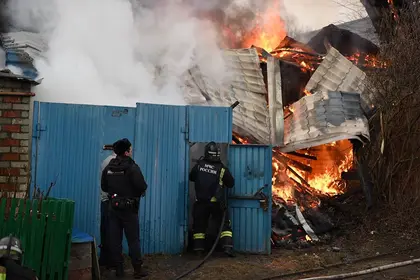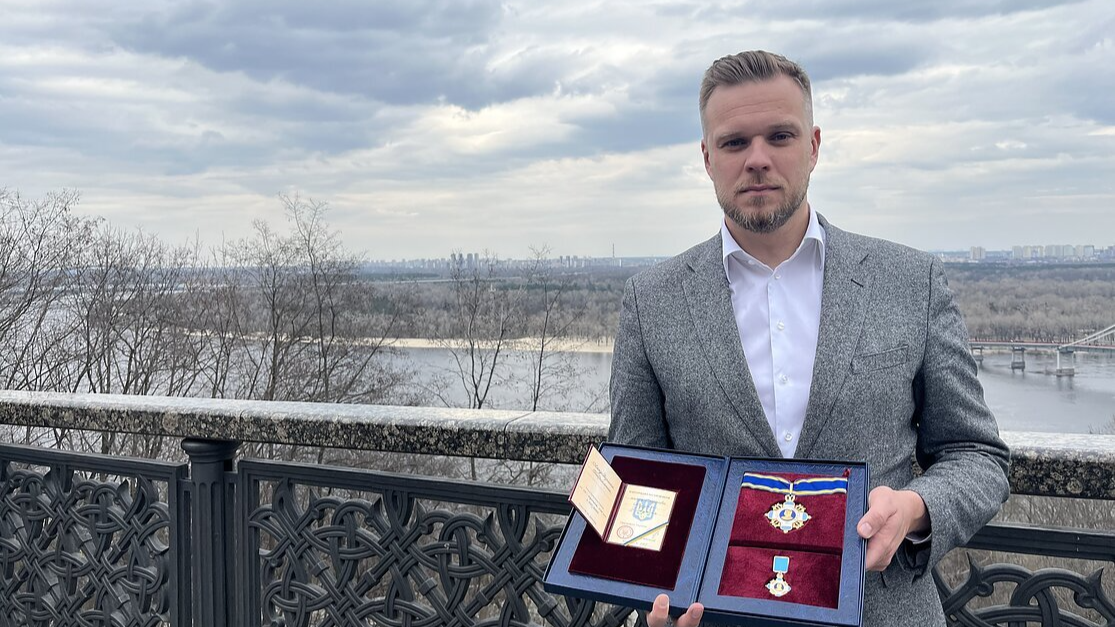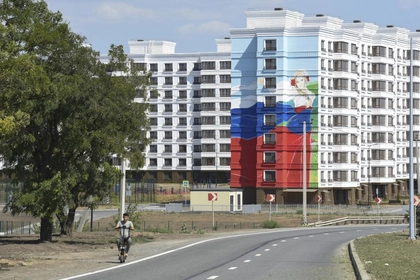A letter reviewed by Agence France Presse on Tuesday expresses European alarm over espionage risks stemming from Hungarian Prime Minister Viktor Orban’s recent decision to fast-track visas for Russian and Belarusian nationals.
Earlier this month, Orban extended Hungary’s preferential residency scheme to eight countries, including Russia and Belarus, streamlining the ability of those nation's citizens to apply to work and live in Hungary.
JOIN US ON TELEGRAM
Follow our coverage of the war on the @Kyivpost_official.
Previously, the program was offered only to Ukrainians and Serbians.
“Such a mechanism is highly questionable and raises very serious security concerns,” wrote Manfred Weber, chairman of the center-right European People’s Party (EPP), in a letter to the European Council, warning of “grave loopholes for espionage activities,” within the 29-country Schengen zone, of which Hungary has been a part since December 2007.
“The lack of a clear need for such a broad and unregulated entry mechanism for Russian and Belarusian workers, combined with the possibility of inadequate security screening poses questions over the consequences for Hungary and the wider Schengen area,” he wrote.
The move by Hungary has drawn the fire of Eastern European members, especially. On Tuesday, Lithuanian Foreign Minister Gabrielius Landsbergis warned, “Lithuania believes this step by Hungary poses very serious threats to the security of the Schengen area and many European countries, which is why it is necessary to respond to it at the EU level.”

Ukraine’s Usyk Beats Fury in Heavyweight Championship Rematch
Meanwhile, Orban, the Kremlin’s only ally within the EU and a full-throated supporter of US Republican presidential candidate Donald Trump, complained in a speech to his right-wing base that “Europe has done nothing but follow the US Democrats’ foreign policy unconditionally.”
The European Union should have the courage to follow its own interests once again. Just like in the days of Kohl and Chirac. In other words: Make Europe Great Again! #MEGA pic.twitter.com/AFAJW6Y6tS
— Orbán Viktor (@PM_ViktorOrban) July 30, 2024
On Tuesday, an EU spokesperson told a press conference that “Russia is a security threat to the EU, and hence all instruments at Union level, at member state level, need to ensure the safety of the Union and also to take into account the security of the Schengen area as a whole.”
Belgorod residents say they are now feeling fear and blowback from Russia’s unprovoked war on a daily basis
A recent feature article by Al Jazeera turned the spotlight on the Russian border city of Belgorod, which has been the target of Ukrainian attacks for months, revealing the effects on Russian citizens of the nearly 30 months of Moscow’s invasion of Ukraine as Kyiv’s airstrike commanders increasingly rotate their crosshairs eastward over the border.
“I saw and heard the shelling of Belgorod from the very start of the war,” Yuliya, a 21-year-old Russian journalist, told Al Jazeera. “It was impossible not to hear it, it touched everyone in the city.
“Nowhere is safe. Even the city center, where nothing ever happened before and it’s full of police, government officials. They should protect this area, right? Well, as it happens this isn’t true.”
In May, Russian President Vladimir Putin said that his troops were carving out a “buffer zone” in Ukraine’s northeast to protect Russia from attacks in Belgorod. As quoted by Reuters, Putin said the West was “‘sick in the head’ if it thought it could dictate terms to Moscow.”
According to the Doha-based news outlet, which is partially funded by the Qatari state, more than 200 residents of the Russian region have died as a result of attacks since the start of Moscow’s invasion of Ukraine, quoting the governor of Belgorod, Vyacheslav Gladkov. More than a thousand others have been wounded, “including dozens of children, a number of whom have undergone amputations,” Al Jazeera wrote.
The Qatari outlet was quick to couch its reporting by ceding that, “There is no doubt that Ukrainian civilians have suffered the most in the ongoing war, with tens of thousands killed and cities like Mariupol completely devastated.”
The report highlighted a Dec. 30, 2023, rocket attack that allegedly killed 25 people, which, if true, would be the deadliest Ukrainian strike on Russian soil to date.
“Unfortunately, this has become the reality of each person who lives here,” political scientist Margarita Lisnichaya, a Belgorod native, told Al Jazeera, saying she still supports Putin.
Belgorod / Bilhorod PR ❗
— LX (@LXSummer1) July 30, 2024
Shebekino - A car is on fire tonight. Details unknown. pic.twitter.com/sjCeShhZLi
Finnish volunteer combatants mourn the loss of fourth soldier killed in Ukraine
The Association of Finnish Combatants or “Sodan Kokeneet ry” announced on Tuesday that another Finnish volunteer soldier fighting against the Russian invasion alongside Ukrainian Armed Forces (AFU) has been killed in action.
The Finnish volunteer was killed in mid-July north of Donetsk, the Association said, as relayed by Ukrainian state-owned media, adding that the soldier’s family has been notified of his death.
Independent media reports out of Helsinki that four Finns who fought for the AFU have been killed in action so far.
In all, between 20 and 30 Finnish nationals are believed to be volunteering on Ukrainian battlefields, the head of the Finnish Foreign Ministry’s consular services in Kyiv, Jussi Tanner, told Helsinki news outlet Yle in February, according to Ukrinform, which added that local media had previously reported that there could be as many as 50 such volunteers.
Finland, one of NATO’s newest members (and one of its smallest, at a population of about 5.5 million), has remained a steadfast ally of Kyiv since the full-scale invasion began. Just one day prior the volunteer’s death, the Finnish Prime Minister reassured his countrymen that the encroachment of the Russo-Ukrainian war on Finland’s borders, after Ukraine attacked an Arctic Russian base merely 120 miles away, should not cause any concern for domestic security in Finland.
We need to get used to the fact that the war will come to Finland's borders — President
— Igwe Ofeaku (@IgweOfeaku) July 30, 2024
Finnish President Alexander Stubb commented on Ukrainian media reports that this Saturday Ukraine launched a drone strike on the Olenya military airbase in northern Russia pic.twitter.com/W7CwHDBezE
You can also highlight the text and press Ctrl + Enter









